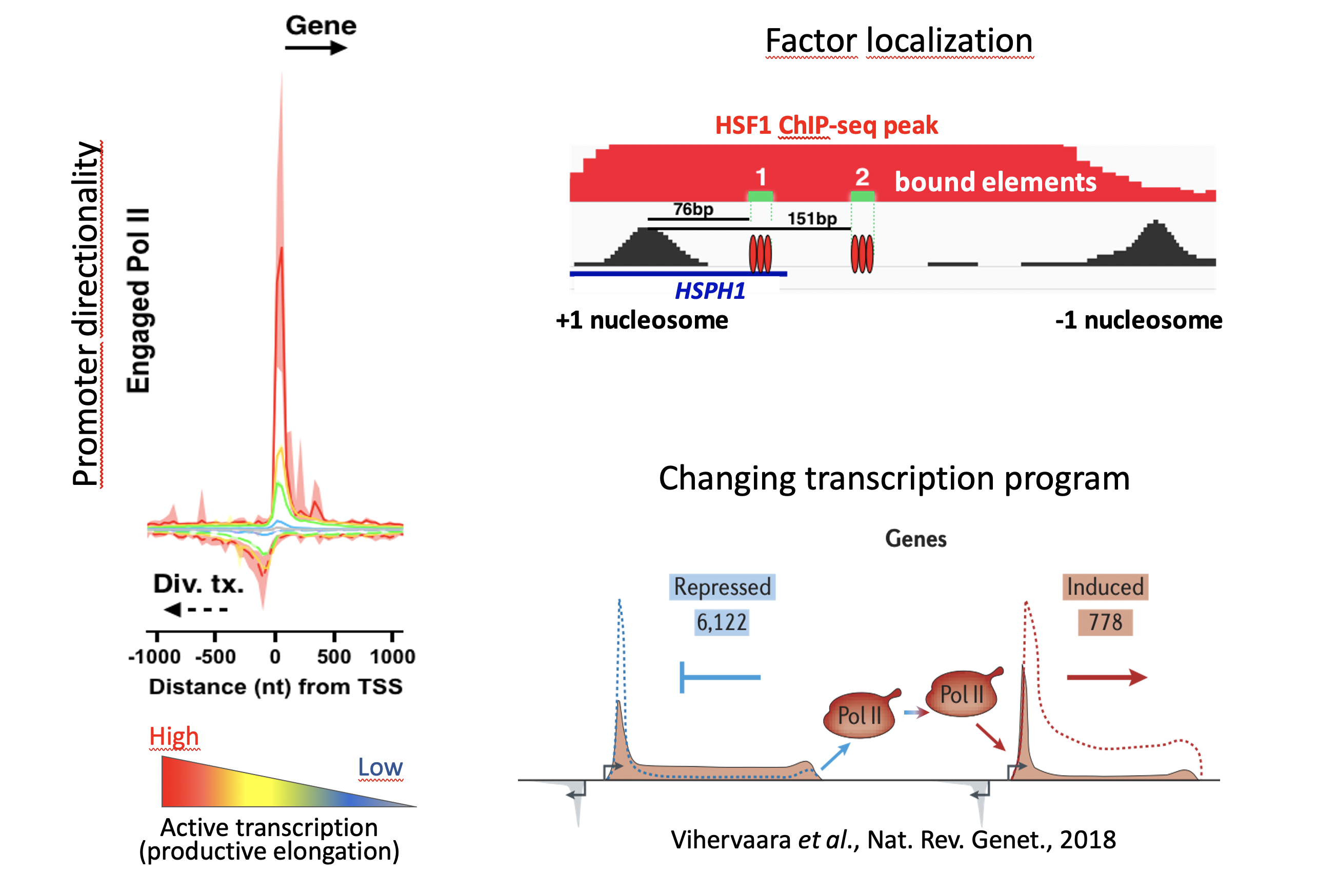Molecular Genomics
We study genome regulation, chromatin architecture and transcriptional mechanisms at a molecular level. We use and develop techniques that track transcription machinery at a nucleotide-resolution as it transcribes through the rate-limiting steps of transcription. The mechanistic information gained on genome organization and transcription is applied to physiologically relevant settings to understand how cells rapidly respond to stress, differentiate into highly specialized cell types, or progress during disease.
Research
Dynamic regulation of RNA polymerase II (Pol II) at promoters and enhancers defines cellular identities, and the cells’ abilities to respond to external and internal stimuli. In human cells, three billion nucleotide pairs encode the instructions for RNA and protein synthesis, a code that is read by thousands of transcription factors and their co-regulators. How distinct cells utilize the genetic code is orchestrated by DNA-protein interactions at promoters and distal regulatory elements, ultimately controlling the activity the transcription machinery across the genome. In the Molecular Genomics lab, we investigate genome organization in high-resolution, and map how chromatin architecture primes and directs cellular responses. We utilise and develop nucleotide-resolution techniques that track the process of nascent transcription across genes and enhancers. By using models such as stress response, differentiation and neurodegeneration, the mechanism that coordinate chromatin and nascent transcription across the genome are coupled to cellular state, development and disease progression.

